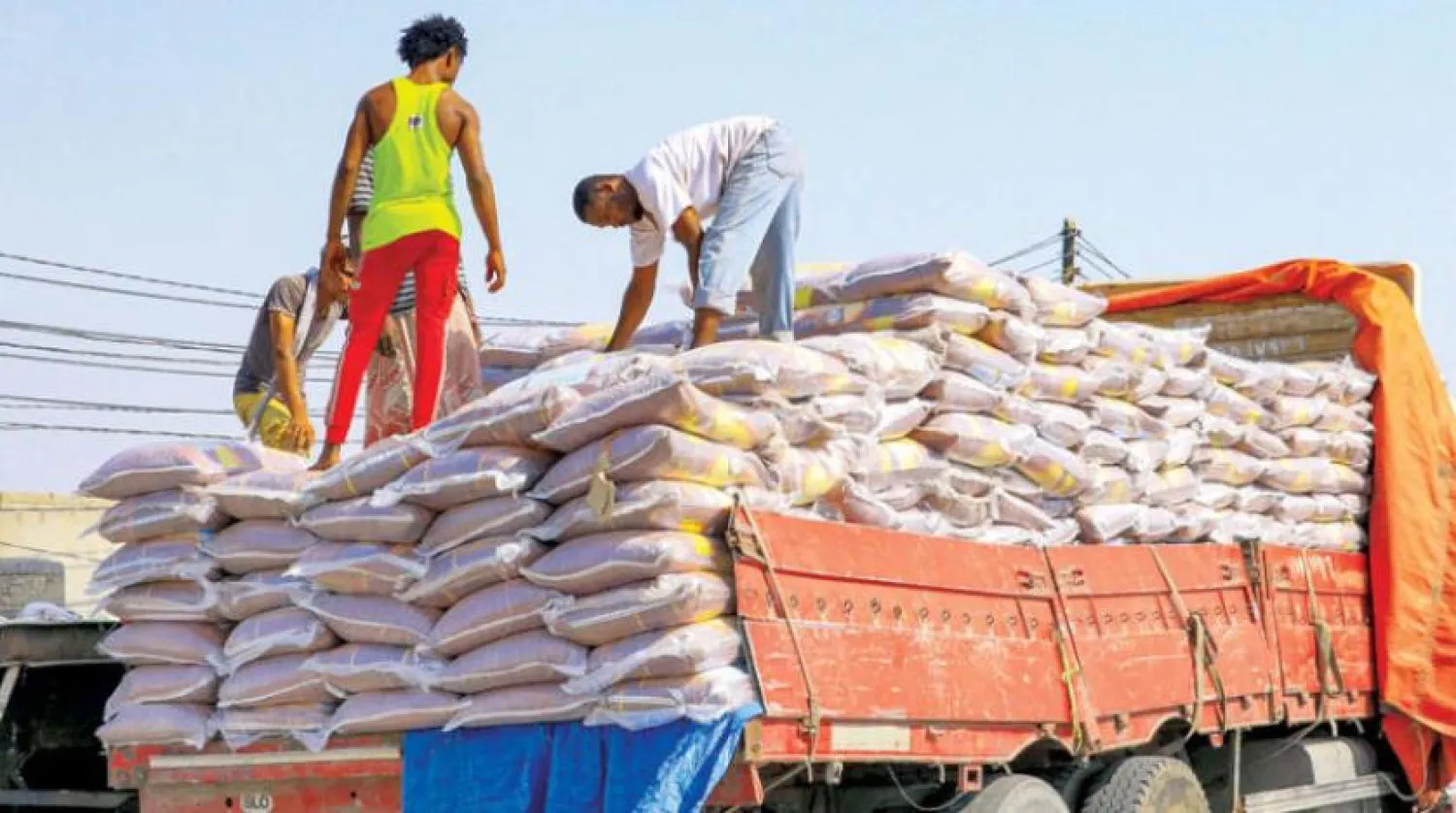The Iran-backed Houthi militias have set new conditions for international humanitarian aid agencies and UN programs operating in Yemeni areas under their control, forcing the relief organizations to give up the personal data of aid beneficiaries.
In the meantime, Asharq Al-Awsat uncovered documents and information from judiciary sources showing how the Houthis have established an entire network dedicated to looting humanitarian aid sent to impoverished Yemenis and redirecting it to serve and benefit the group’s militiamen.
According to public prosecution records in Sanaa, the Houthis have manipulated, seized, and sold relief aid destined to Yemenis. The donations, including aid from the World Food Program (WFP), were then sold to merchants loyal to the Houthis.
In a 2018 prosecution report prepared by militia authorities in Sanaa, Houthi inspectors raided the warehouses of a merchant called Hamid Hussein al-Kabous.
Initially, the group was seeking to seize banned pesticides and toxic material, but instead grabbed 131 wheat sacks, 95 tin cans of green peas, each tin weighing 50 kg, and 544 packages of WFP aid. WFP labels, clearly prohibiting the selling or importing of the aid, are slapped on all the seized products.
The Houthis then covered up their findings with another report that accused al-Kabous’ brother, Taha, of possessing WFP aid. The other report mentioned nothing of the pesticides found stored next to food aid.
A judicial source in Sanaa told Asharq Al-Awsat that these two reports reveal three crimes: manipulating aid, smuggling toxic pesticides, and storing pesticides next to foodstuffs.
Moreover, the Houthis have put restrictions on delivery and distribution of aid to some 19 million Yemeni living in areas under their control.
The militias are demanding that the United Nations Office for the Coordination of Humanitarian Affairs (OCHA) apply for a permit from their authorities before resuming work in Houthi-run parts of Yemen.
By applying to the permit, the international body would be required to present all the information pertaining to beneficiaries in Yemen.









